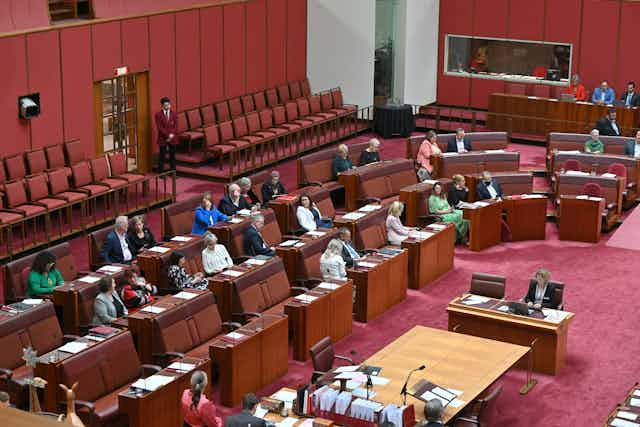The most significant recommendation in the Senate inquiry report on the functionality of the Commonwealth FOI system is this: move the federal Freedom of Information (FOI) function from the Office of the Australian Information Commissioner’s Office (OAIC) to the Commonwealth Ombudsman’s Office.
The inquiry was triggered by the resignation of the then FOI commissioner, Leo Hardiman, in March 2023, less than a year into a five-year term.
Hardiman cited severe governance and culture issues in the OAIC as the reasons for his resignation. In his detailed submission to the inquiry, he made it clear the FOI section was starved of funds and not able to do its job. Hardiman was also critical of the current Information Commissioner, Angelene Falk, pointing out, among other issues, that Falk prioritised the privacy functions over FOI.
Falk strongly disagrees with Hardiman’s points. However, in the report, the committee members accept Hardiman’s integrity reasons for resigning.
When the OAIC was created in 2010, hopes were high for a better-functioning federal access-to-information system. This was on the back of Kevin Rudd’s 2007 election promise of significant reforms.
Labor elder John Faulkner led the reform process. The reforms were indeed some of the most far-reaching we have seen since Australia’s first FOI Act was passed in 1982. At their core was the idea to co-locate the functions of the privacy commissioner and the FOI commissioner in one office, led by a third information commissioner.
Read more: It’s time for the government to walk the talk on media freedom in Australia
Under inaugural Information Commissioner John McMillan, the OAIC got off to a good start. There were indications the information access culture had started to shift towards more openness and away from the secrecy that had been the norm until 2010.
When Tony Abbott was elected prime minister in 2013, he swiftly attempted to close down the OAIC. When this failed, the office was starved of funds to the point where there was no FOI commissioner appointed between 2014 to 2022. These eight years without an FOI commissioner clearly shifted the balance between privacy and FOI in the OAIC.
When Hardiman became FOI commissioner in March 2022, the damage to information access was apparent. The backlog of FOI reviews was huge. In his submission, Hardiman pointed out that, with the current funding, he saw no way of clearing the backlog.
Overall, the Senate inquiry report is surprisingly frank and far-reaching. In the recommendation section, the report concludes:
It is clear that the Commonwealth Freedom of Information (FOI) system is not working effectively and for some time has not functioned as it was intended.
The report makes 15 recommendations. Of these, in my view, the most important are:
- there should be an independent external review of the functionality of the OAIC
- funding to the FOI commissioner should be increased to clear the review backlog and enable the commissioner to function as intended
- there should be increased focus on access to personal information without having to use FOI requests.
These are all important points. Some of the legal tweaks to the act would, based on my research, have less effect on the overall functionality of the FOI system. My research team has shown time and again that a focus on information access culture is much more effective than legal changes.
In mid-2024 my team will publish a report comparing FOI culture in Victoria, South Australia and Western Australia. The project is large in scope, involving 96 government agencies in the three states, and based on interviews with 257 FOI officers and government agency executives. Our findings show, unequivocally, that lack of funding and resourcing of FOI teams in agencies is the greatest obstacle to functionality.
The Senate report does mention both resourcing and the culture of implementing FOI but does not, based on our research, pay enough attention to these crucial issues.
That said, the report should be commended for pointing to some immediate action that is badly needed, such as the external review of the OAIC. It’s disappointing the three-commissioner model appears to not work as intended. There are merits in co-locating privacy and FOI in the same office, but, for this to work, there needs to be a balance between these functions.
Read more: Politics with Michelle Grattan: Rex Patrick on Freedom of Information and Australia's submarines
The research is in on how to make access to information work well in Australia. It’s not rocket science, but it requires political will (which can at times be more complex than rocket science).
Based on our research, these are the three overarching areas to address when it comes to FOI:
- proper funding of FOI teams in government agencies
- creating proactive information release policies tailored to individual government agencies (that is, information should be released without the need for FOI requests)
- update records management in government agencies. This sounds boring, but it’s the base for both good governance and information access.
It will be interesting to see if the Albanese government will act on any of the recommendations in the Senate report. History shows that demanding far-reaching FOI in opposition is easy. Implementing it in government can be very hard.

